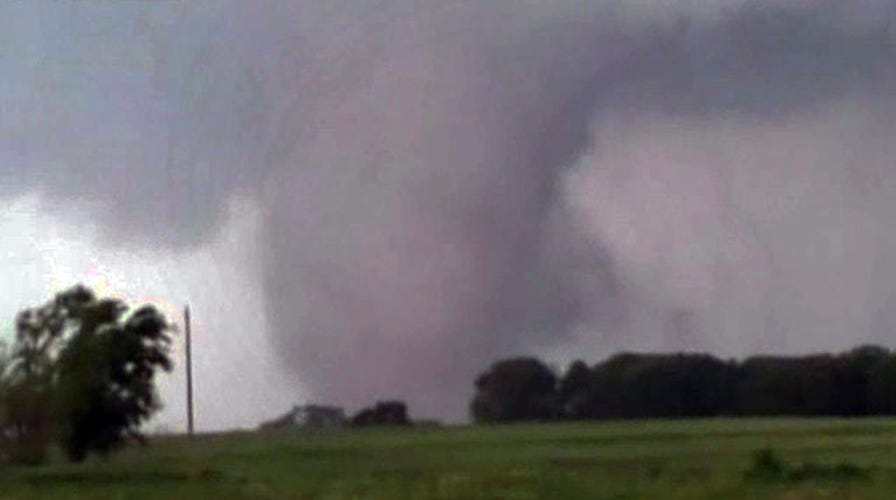Massive tornadoes destroy homes, shatter lives in Midwest
Casey Stegall reports from Shawnee, Oklahoma
The agnostic philosopher David Hume claimed that tragedies in the world such as the tornadoes in Moore, Oklahoma last week constitute prima facie evidence that God is either evil, impotent, or non-existent.
Admittedly, reconciling the reality of suffering with faith in a loving, all-powerful God is difficult.
The late rector John Stott claimed that the existence of suffering in the world posed the single greatest challenge to the Christian faith.
[pullquote]
When Lee Strobel was preparing to write his best-selling book “The Case for Faith: A Journalist Investigates the Toughest Objections to Christianity,” he conducted a nationwide survey asking, “If you could ask God anything what would you ask?” The top response was, “Why is the suffering and evil in the world?”
As a pastor for more than 30 years, I realize that when people pose that question they are not as concerned with suffering in the world in general as they are with the reality of suffering in their own lives. If there is a God, why would He allow this unwanted divorce, undeserved termination from a job, or unexpected illness?
One night my wife and I were traveling on an interstate highway in the middle of West Texas in a driving rainstorm when our headlights went out due to an electrical malfunction in our car.
We could not see two inches in front of us, but we were hesitant to pull over to the shoulder of the road for fear of being hit by another car.
Thankfully, we spotted an eighteen-wheeler in our rear-view mirror. We allowed it to pass us, and then we simply zeroed in on its taillights and followed it safely into the city limits of our town.
Although there is no pat answer to the question, “Why does God allow suffering in the world?” the Bible does offer three truths (or “lights”) we can depend on to lead us safely through the storms of adversity that unexpectedly blow into our lives.
God is loving. The psalmist declared, “The earth is full of your lovingkindness, O Lord” (Psalm 119:64). Even apart from the Bible, the world is filled with the evidence of a benevolent Creator.
Yes, occasionally floods and tornadoes bring indescribable heartache and even death. But such disasters are the exception rather than the rule. Most of the time rivers stay within their banks and winds are held in check.
The outpouring of help by first responders and the financial support for those whose lives are destroyed by the occasional disaster are a reflection of the goodness of God in whose image we are made.
God is all-powerful. Again, the psalmist claims that God is in control of all His creation (Psalm 103:19). Some people find this truth troubling. If God has the ability to prevent natural disasters and human tragedy, why doesn’t He?
In an attempt to acquit God of responsibility for evil in the world, a growing number of people think of God as a loving but impotent old man who would like to help us, but is incapable of doing so.
But do you find any comfort in the belief that you are simply a victim of random events and people? Fortunately, the Bible assures us that there is a God who is in control of everything that happens in our lives.
God’s ways are beyond our understanding. One of the most famous analogies about God’s purpose in suffering is that of a bear caught in a trap in the woods. The hunter, wanting to help the bear, approaches him, but the bear won’t allow it.
The hunter, determined to help, shoots a dart full of drugs into the bear. The bear is now convinced that the hunter wants to hurt him.
The drugged animal, now semi-conscious, watches as the hunter actually pushes the bear’s paw further into the jaws of the trap in order to release the tension.
The bear has all the evidence it needs to conclude the hunter is evil. But the bear has made its judgment too soon, before the hunter frees him from the trap.
At some point God will seem unfair to those of us trapped in time, but we make our judgment too soon.
One day, perhaps not until heaven, we will understand what the Hunter was up to in our lives. Until that time, God says “Trust me. I have a plan I’m working out in your life, even though in the darkness of the storm you cannot see what that plan is.”

